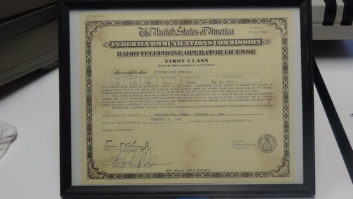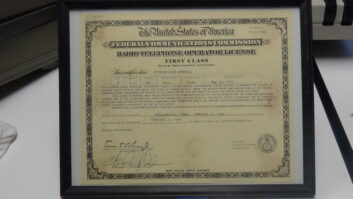In its last Open Meeting of the year, the Federal Communications Commission tackled a number of radio-related issues, including denying a listener request that a station have its licensed revoked due to objectionable programming.
Daniel Miller, a listener in New Jersey, wrote to the FCC several times over the last two years to complain about the programming choices of station WBAI(FM) in New York City. The station is part of a network of radio stations operated by Pacifica Foundation.
In his most recent Informal Objection in August, Miller pressed the Media Bureau to deny renewing the station’s license.
Miller said the noncommercial, listener-supported station is broadcasting content that Miller finds objectionable. He refers to programming that he said aired on WBAI about an escaped fugitive who was involved in the shooting of a state trooper; the WBAI programming allegedly described the fugitive as a “hero,” a sentiment that Miller said is not protected by free speech.
This isn’t the first time this kind of objection has been filed against the station. Informal objections were filed by two other listeners in 2014 and 2015 over a variety of issues including theft, fraud, bribery, improper business practices, public file violations and a lack of diverse programming.
The Media Bureau addressed those objections jointly, including Miller’s, in August and said it was unable to substantiate any of the allegations. The bureau also found that WBAI’s programming decisions are protected under the First Amendment.
Miller filed an Application for Review to contest the Media Bureau’s finding; but on Dec. 14 the full commission moved to support the Media Bureau’s original decision and denied Miller’s application.
When it comes to programming, the commission said, a “licensee has broad discretion — based on its right to free speech — to choose, in good faith, the programming it believes serves the needs and interests of its community of license. We will intervene in programming matters only if a licensee abuses that discretion.”
The commission also said that it would not take adverse action on a license renewal application based upon the “subjective determination” of a listener who claims the station has broadcast purportedly inappropriate programming.
Under the Communications Act, the commission can only deny a broadcast station’s application for renewal if the station failed to serve the public interest, committed a serious violation of the act or rules, or committed a series of violations that constitute a pattern of abuse. None of those were applicable in this case, the commission said.












